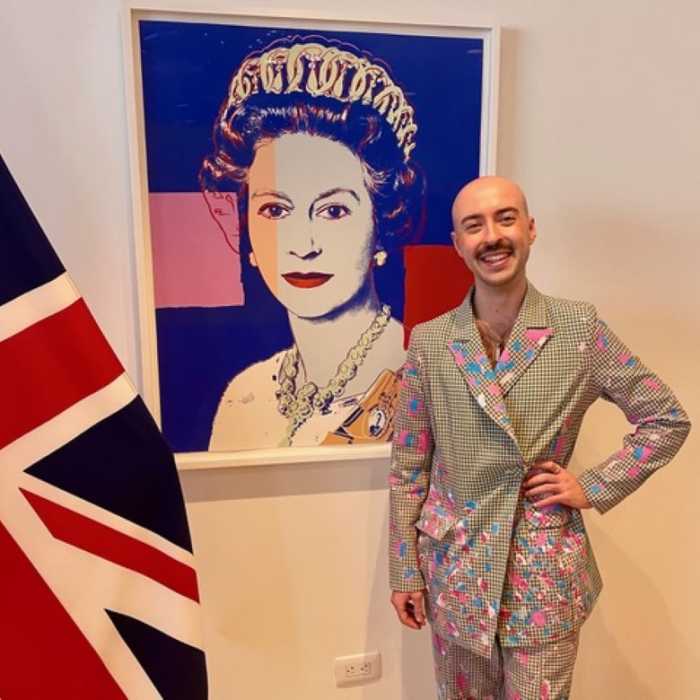Victor Garber might just well be the most accomplished actor you’ve never heard of. To be sure, theater geeks have been following him for nearly four decades, first as Jesus in a 1972 production of “Godspell,” then later in the Broadway premieres of “Deathtrap,” “Sweeney Todd,” “Noises Off,” “Art,” and the 1994 revival of “Damn Yankees,” just to name a few. More recently, he won raves for the Encores! production of “Follies.”
The silver-haired Garber is one of the few actors who can flit effortlessly from theater to film to television — not as an incidental character but in memorable, meaty roles. He was the stoic shipbuilder in “Titanic,” the ruthless lawyer in “Legally Blonde,” and the doomed San Francisco mayor in “Milk.” Still can’t place him? He was Jennifer Garner’s Spy Daddy for five seasons on “Alias.” And the do-good attorney on “Eli Stone.” And you’ve seen him do guest stints on “Will & Grace” and “Glee.” Yeah, THAT guy.
Stealth star breathes new life into a Noël Coward classic
So why does his name draw quizzical stares? Perhaps it’s because Garber prefers solid roles over those with mere sizzle, and tends to disappear so completely into his characters that he’s not readily identifiable. Preferring to keep his private life to himself, he’s managed to avoid the tabloids. Rumors in the blogosphere identifying him as a glass-closet gay have been met with a resounding “so what?” Unencumbered by the shackles of celebrity, he’s been free to focus on what truly matters — the work.
And yet, despite a raft of major award nominations — four Tonys and six Emmys — he’s come up empty-handed.
That soon may change. The 60-year old, still-sexy stalwart has a pretty fair shot at Tony glory with his latest endeavor, the top-notch revival of “Present Laughter,” the 1939 Noël Coward drawing-room comedy about an aging playboy — playdaddy? — navigating the rocky terrain of middle age. Set in a swank deco London flat, the play chronicles a few days in the life of matinee idol Garry Essendine, and the tumult of his associates, friends, ex-wife, domestic staff, and sundry headstrong women who throw themselves at his feet and end up in his spare room wearing his silk pajamas. One admirer is all of 23.
Originally, Coward wrote the role for himself upon entering his 40s. Now it’s been upped to 50s to suit Garber, which actually deepens the “carpe diem while you still can” theme. It has been said that the sticky, tangled web of lovers and others was lifted directly from Coward’s own life, with certain genders changed, of course.
As far as I can tell, the age change appears to be the only major departure from the original, and that’s a daring choice when reviving a period piece these days. This Roundabout production, under the prudent direction of Nicholas Martin, has wisely chosen to entirely respect the original, dusting off the cobwebs without scratching the magnificent patina.
They’ve even retained the three-act, two intermission structure in an age where directors are streamlining scenes and cutting intermissions to placate modern theatergoers with short attention spans. This allows Coward’s wry text to breathe free and shimmer, as it should. The joys of this production are found not so much in the zany plot twists but the calmer, cadenced spaces in between. Sure, it’s a farce, but it’s a subdued, nuanced kind of farce. Characters hide in rooms and pop in and out of doors. But, to our relief, these doors don’t slam.
The cast is superb. Garber infuses the arrogant, often petulant Garry with just the right notes of boyish vulnerability. He’s rich and famous and an “unmitigated cad,” but somehow earns our empathy. While his performance might seem overwrought at first, it becomes clear that it’s carefully calibrated, for Garry is one of those actors who’s convinced that all the world is a proverbial stage, and he must play his part. “I’m always acting, watching myself go by,” he laments.
As his devoted secretary, Harriet Harris (who won a Tony for “Thoroughly Modern Millie”) delivers a heady mix of officiousness, maternal care, and wisecracks — think Eve Arden, with a splash of Rosalind Russell. Lisa Banes, as Garry’s wife who left him years ago, is also terrific. She’s remained a fixture in his life, a dear friend whose aim is to stop Garry from “over-acting.” Also noteworthy are Holley Fain as the young Daphne, who conveniently forgets her latchkey and ends up staying the night, and Pamela Jane Gray as the diabolical Joanna, who also forgets her latchkey and, well, you get the idea.
The most over-the-top character is Roland, the unctuous, googly-eyed playwright who stalks Garry. As played, he is a clown whose mannered antics provide comic relief, even if they push the limits of plausibility.
The set, by Alexander Dodge, is a sumptuous art deco fantasia studded with walnut wainscoting and accented with a sparkling crystal chandelier, a grand piano (which allows Garber a chance to showcase his vocal talents), and, naturally, an imposing curved staircase for Garry’s grand entrances. Jane Greenwood’s costumes are stunningly stylish as well.
If you think intricate comic farces from the 1930s are a guaranteed success, you’d be mistaken. Last spring, “Accent On Youth,” a strikingly similar play about a 50-plus bachelor in the theater biz defying the march of time, was a dud. Even the gifted — and well-known — star David Hyde Pierce couldn’t rescue it.
Near the close of the first act of “Present Laughter,” Garry and the obsessed Roland debate the merits of the theater of ideas versus commercial theater. For thoughtful theatergoers who don’t mind their plays served straight up with no fancy twists, this engaging, exquisite production offers both.

































